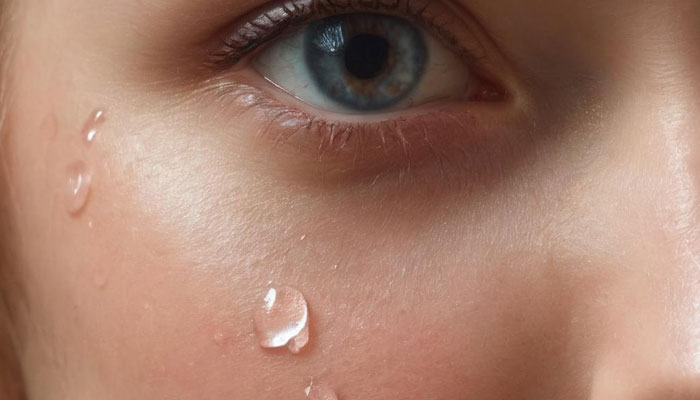Human tears are 'natural antidote' to male aggression, says study
STUDY underscores potential significance of tears in regulating social interactions in human beings
December 22, 2023

A recent study has unveiled an intriguing discovery about the power of human tears in curbing aggression, particularly in men.
The research, conducted by the Weizmann Institute of Science in Israel, published in the scientific journal PLOS Biology, studied the chemical signals present in tears and their impact on reducing aggressive tendencies. Taking a cue from previous studies that established that rodents utilise tears as social signals, this study focused on the effect of tears from female volunteers on male aggression.
Led by PhD student Shani Agron, the study involved exposing 25 male volunteers to "emotional" tears collected from female donors who had watched sad films. Interestingly, these tears, although odorless and indistinguishable from saline, had a significant impact on the participants' aggressive behaviour.
The findings showed that after sniffing these tears, men's hostile and vengeance-seeking behaviour decreased by an impressive 43.7 percent. This aligns with previous findings showing that tears can reduce testosterone levels in men, which in turn affects aggressive tendencies.
However, unlike rodents, humans lack a specific organ in their noses to detect these odorless chemical signals. To understand the mechanism behind this phenomenon, researchers applied tears to various olfactory receptors and found that four receptors were activated exclusively by tears, not saline.
Additionally, brain imaging using MRI scanners showed reduced activity in brain regions associated with aggression when participants were provoked during a computer game after exposure to tears.
The study suggests that human tears might emit signals that subconsciously deter aggression. The authors speculate that this phenomenon might have evolutionary roots, serving as an essential communication tool, especially when verbal communication isn't feasible, as in the case of infants.
Shedding light on this unique aspect of human biology, the study hints at the remarkable potential of tears to influence social behavior. The findings highlight a captivating avenue for further exploration into the intricate world of human emotions and their physiological effects.
The research not only provides insights into the role of tears beyond emotional expression but also underscores their potential significance in regulating social interactions and reducing aggression among individuals.









